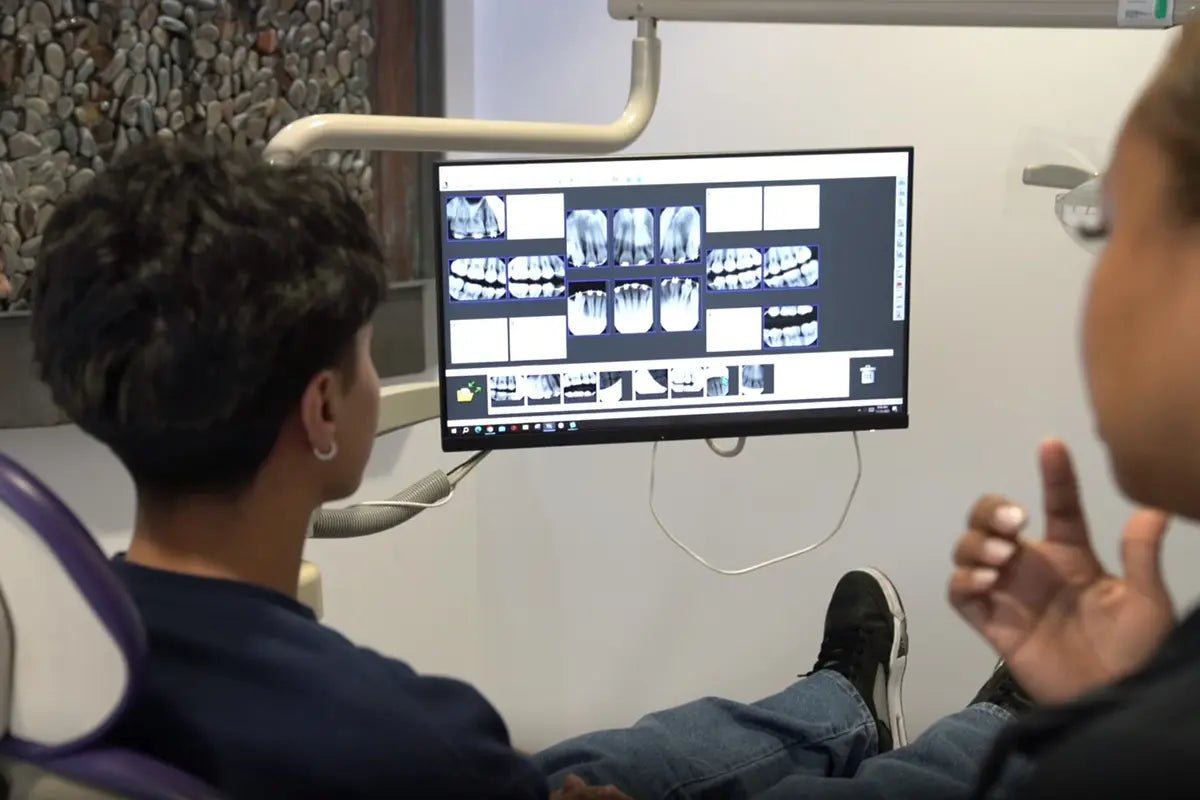Practical Tips To Manage Prolonged Numbness After Dental Work
So, you just got your teeth done with your dentist. Congratulations! You’re on your way towards healthier teeth. If you just had an extraction, wisdom tooth removal, or a dental crown, you might still have a slight tingling sensation around the region where anesthesia was injected.
Don’t worry. It will eventually wear off and you’ll be celebrating a successful dental work with your favorite food in no time.
If you’re anxious about prolonged numbness after dental work, worry no more. This article equips you with the knowledge and strategies for effectively managing dental numbness.

How Does Numbness Occur?
Dental-related paresthesia or the partial loss of local sensitivity due to a dental procedure is a very common experience. According to a study, in 83% of facial paresthesia cases, doctors can identify a cause. Nearly half (48%) of these identified causes are dental procedures.
So, how does this phenomenon occur during dental work?
During dental procedures, local anesthetics temporarily prevent the propagation of nociceptive nerve impulses. In other words, the anesthetic solution blocks pain signals in the treated area, allowing for a comfortable dental experience.
In rare cases, numbness after dental work can last longer than expected. The numbness or tingling sensation should typically last one to four hours after dental treatment. If the burning or numbness persists beyond the normal timeframe, this might be a sign of inferior alveolar or lingual nerve paresthesia.
In dental-related paresthesia, the most common nerves affected are:
- Lower jaw and lip: This is controlled by the inferior alveolar nerve.
- Tongue: This is controlled by the lingual nerve.
While the main cause of inferior alveolar nerve paresthesia is still unknown, it may still occur in 0.35% to 8.4% of dental patients. Speculations and theories suggest that causes include anesthetic toxicity, nerve injuries following injections, and high concentrations of anesthetic solution.
Managing Prolonged Numbness: Pre-Appointment Tips
Some tips to help you manage prolonged numbness aren’t rocket science. As a matter of fact, you can help your system adjust well to the post-treatment effects of anesthesia without waiting longer.
Here are some pre-appointment tips you can follow:
Avoid foods that prolong anesthetic action
According to a study by the University of Chicago Medical Center, what you eat in the days leading up to surgery might affect how your body reacts to anesthesia.
Certain foods, like potatoes, tomatoes, and eggplants, can slow down how your body breaks down anesthesia.
These foods are said to contain compounds called solanaceous glycoalkaloids (SGAs) that slow the breakdown of many commonly used anesthetics and muscle relaxants, including newer short-acting anesthetics.
Disclose any allergies or medications
If you are currently taking medications, whether prescriptions, over-the-counter drugs, or supplements, ensure to tell your dentist before your dental procedure.
Experts suggest that supplements such as Kava and Valerian which are used to relieve anxiety can prolong the effects of anesthesia.
Relax and avoid anxiety
It’s common to feel anxious when visiting the dentist. Dental anxiety is a natural physical or psychological response to anticipated risks associated with any dental procedure.
According to the Cleveland Clinic, around 36% of people in the U.S. experience some anxiety about dental visits, with 12% having a more intense fear.
But did you know that stress and anxiety can heighten the perception of numbness?
In general, a higher dose of anesthesia may take longer to wear off. However, the specific duration can be influenced by several factors.
So, prior to your dental appointment, take some deep breaths or listen to calming music to keep yourself relaxed. It will also help if you discuss your anxiety with your dentists so they can provide a morale boost and a more tailored treatment.
Natural Ways to Reduce Numbness
In situations where numbness persists for a prolonged period, it’s always best to seek guidance from your dentist. Prompt intervention can save you from the risks associated with prolonged dental numbness.
While waiting for your dental appointment, here are some practical ways to get rid of dental numbness:
- Allow blood to flow near the affected area by giving your face or lips a gentle massage.
- Use a warm compress for it helps dilate blood vessels in the area, increasing blood flow.
- Get active but not too active. Take a brisk walk. Again, it’s all about stimulating blood flow in your body.
- Catch some sleep and have a brief rest until the anesthesia wears off on its own.
Again, these are just suggestions, and they may not work for everyone. Remember, nothing beats good old dental expert advice.
Partner with United Dental Care for a Smooth Recovery
Numbness after dental work is a common, temporary hurdle. But with the right knowledge and a touch of a trusted dentist in Culver City, you’ll be back to enjoying your favorite treats.
If you’re looking for the best dental partner, United Dental Care is here to guide you every step of the way. We’ll explain the potential causes of prolonged numbness and create a personalized management plan.
Schedule an appointment today! We're here to ensure your dental journey is comfortable and successful.




 By:
By: 

